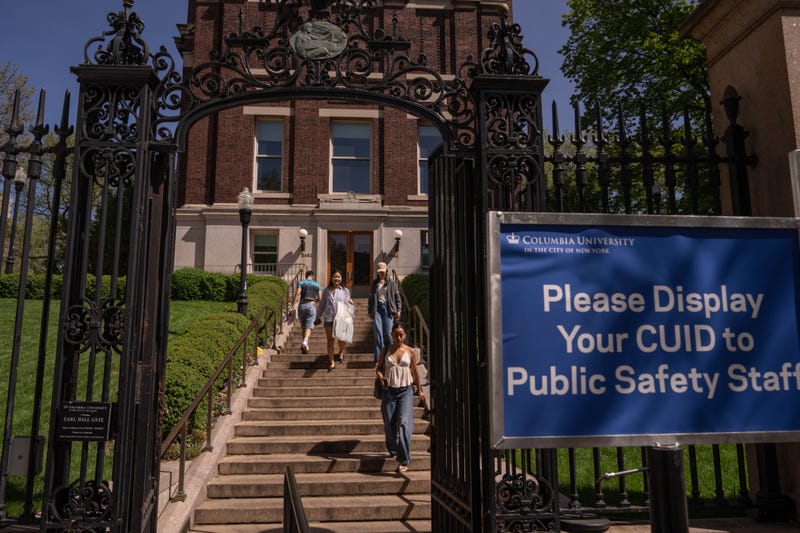
NEW YORK (BLOOMBERG) -- Columbia University will cut 180 staffers working on research impacted by the Trump administration’s withdrawal of federal funding for grants, university leadership said in a statement Tuesday.
The university said the financial strain had become “intense” as it continued to fund individuals whose salaries and stipends had until recently been funded with federal support. The reductions amount to 20% of individuals employed by Columbia who were funded at least in part by now-terminated grants.
“Moving forward, we will be running lighter footprints of research infrastructure in some areas and, in others, maintaining a level of research continuity as we pursue alternate funding sources,” the university said. “In some cases, schools and departments are winding down activity but remain prepared to reestablish capabilities if support is restored.”
The school, which has an endowment of about $15 billion, said it made the decision after reviewing and prioritizing research activity.
In March, the Trump administration canceled $400 million in federal grants and contracts to Columbia, citing inadequate response to complaints of antisemitism by Jewish students since the Oct. 7 attack by Hamas on Israel. The White House has broadened its attack to other elite schools including Harvard, Northwestern, Cornell and Princeton, and widened the scope of criticisms to include diversity, equity and inclusion efforts as well as left-leaning ideological bias.
Columbia had been negotiating with the administration to address the funding and in March agreed to a list of demands, including banning masks used by protesters, expanding campus police powers and appointing a senior vice provost to oversee the Middle East, South Asian and African Studies department. But the interim president at the time, Katrina Armstrong, stepped down amid the discussions and was replaced by Claire Shipman, co-chair of the trustees.
The talks, which remain ongoing, sparked criticism over the school’s response to some of Trump’s demands. Shipman has said Columbia would reject any deal in which the government dictates what it teaches, researches or who it hires.
Columbia also said Tuesday that it will contribute funds to support graduate students and fellows who were depending on now-terminated grants, and that the school established a fund to support researchers should there be additional funding cuts. Scientists can apply for internal grants as they seek alternate sources of funding, the school said.
To shore up its budget, the school will make “significant” reductions within its central administration, including by keeping salaries flat. It also plans to launch a “voluntary retirement incentive program.”
Federal officials signaled in March that Columbia was on track for funding to be unfrozen. But in April, the Wall Street Journal reported that the Trump administration was weighing plans for a consent decree to give a federal judge oversight of Columbia’s practices. On Monday, the paper reported that the school was in talks with the administration over a proposed consent decree.
Columbia denied the report, saying in a statement it was based “entirely on hearsay and does not hold merit.”
More stories like this are available on bloomberg.com.
